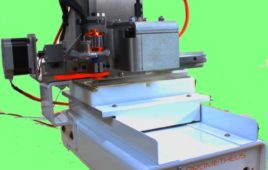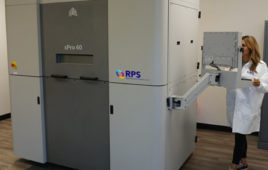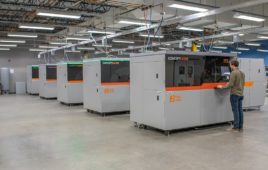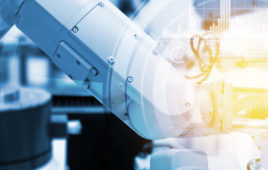Twelve teams have applied to take part in the Up Great “First Element” contests. The contests are being held as part of the National Technology Initiative and are aimed at overcoming the most complex global technical barriers. The contests are asking participants to develop hydrogen fuel cells, which can be used to power means of transport both on land and in the air and which, in terms of efficiency, will be comparable with vehicles driven by the internal combustion engine or battery power.
Seven teams are in the bidding for the “First Element.Air” competition. A further five teams have applied to take part in the “First Element.Earth” contest. Among those taking part are development teams from Samara’s S.P. Korolyov National Research University, SkolTech, Ural Federal University and the Mendeleev University of Chemical Technology, as well as representatives of the companies “InEnergy,” “Unmanned Helicopter Systems,” “EcoTEnergy” and “RusNovTech.”
During the contest, participants will first be asked to design hydrogen fuel cells with given power, energy density and mass specifications, and will then be required to test these on multiple drone and unmanned aerial vehicle platforms. The winning construction must be capable of remaining in the air or on the contest circuit for not less than three hours. The finals of the Up Great contest will take place in 2019. The prize money being offered for the “First Element.Air” contest amounts to RUB 60 million; a prize of RUB 140 million is being offered in the “First Element.Land” contest.
“The task facing the contests entrants is extremely complex: to design a fuel cell with energy-to-volume parameters exceeding any global precedent. Should we be able to clear this hurdle, we will have opened up entirely new options for the commercial use of hydrogen – particularly in the vehicle transportation and unmanned aviation sectors. Which of the twelve teams is strongest, is likely to be determined by the contests open tests. We wish all the participants a successful take-off,” said Alexander Povalko, RVC’s Chief Executive Officer.
“Even the boldest hypotheses are scarcely capable of evaluating the possibilities, which hydrogen energy could open up for mankind. At the same time, however, as regards the technology required, the field of hydrogen energy is both complex and knowledge-intensive. We are therefore concentrating not only on quantity, but also on the quality and aptitude of the participating teams, and it is for this, that the stringent requirements and arduous conditions of the contest have been designed. Twelve entries is a very encouraging figure, because it confirms the degree of interest in the subject among the scientific, technical and business communities,” commented Igor Drozdov, President of the Skolkovo Foundation.
“The development of autonomous sources of energy is the key to overcoming these technological barriers. It could be, that we’ll find the solution in hydrogen fuel cells, so that our development teams and indeed the entire company will then be able to enjoy a leading position in the international unmanned aviation market. A government resolution has in fact already been signed allowing experiments to be carried out using unmanned vehicles on our roads. Driver-less tractors are starting to be used in the agricultural sector and the unmanned aviation market, despite its legislative restrictions, is also now beginning to develop,” added Dmitry Peskov, special representative of the President of theRussian Federation on digital and technological development.
According to consultants Frost & Sullivan, by 2020 vehicle manufacturers globally will have brought out at least 20 new models powered by hydrogen engines. By 2030, the total volume of sales of vehicles fueled by hydrogen will have reached 583,000 units per year.
Filed Under: Rapid prototyping




